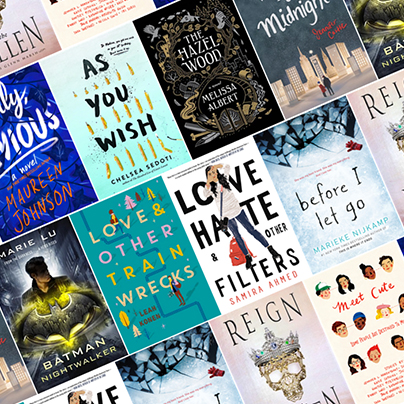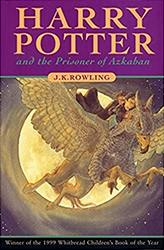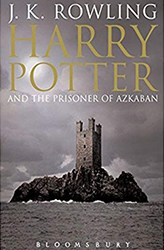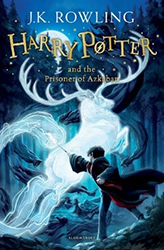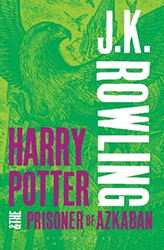Océane Toffoli, Senior School Librarian at Wimbledon High School, discusses Young Adult fiction.
I did not grow up reading Young Adult fiction (YA) but rather went from juvenile literature directly to adult fiction. In my childhood, I read literary works that were not necessarily written for young readers yet appealed to the young me – Charles Dickens, Sylvie Germain, Guy de Maupassant, William Golding, Alexandre Dumas, Agatha Christie, Jules Verne, Simone de Beauvoir, and J. D. Salinger amongst many others. YA was not widely published back then.
Evidently, some of these books would be considered YA today, but then they were not openly labelled as such. Indeed, you might remember that nearly 20 years ago, Harry Potter books were published with two different covers, one for adults and one for children. In fact, this is still the case nowadays:
|
|
|
|
|
YA fiction doesn’t always mean ‘Twilight’ and ‘Hunger Games’
Today, the YA gap on libraries’ and bookshops’ shelves has been extensively bridged but YA literature has suffered from bad publicity with series such as Twilight and The Hunger Games later adapted on screen, or glittery series such as Geek Girl.
This expansive genre-blending literature is much more than dystopian or girly fiction though, as it includes wide-ranging themes such as identity, drugs, sex, bullying, racism, radicalisation, and other coming of age issues.
Why might a YA novel be considered dangerous?

“Sometimes maybe you need an experience. The experience can be a person or it can be a drug. The experience opens a door that was there all the time but you never saw it. Or maybe it blasts you into outer space.” ― Melvin Burgess, Junk
People have considered YA novels ‘dangerous’ for decades because they consider that this type of fiction might:
- Glamourise an issue: Junk by Melvin Burgess was published in 1996. It tells the horrifying yet compelling, realistic story of two runaway teens who join a group of squatters in Bristol, where they fall into heroin addiction and petty theft and embrace anarchism. Despite its raw, harsh content, Junk won the Guardian Children’s Fiction Award and the Carnegie medal – both highly prestigious book awards – and was one of the very first YA novels to be recognised as such.
- Be misunderstood by its target audience: remember YA is not aimed at children but for readers aged 14+, not before, even if you are a keen bookworm
- Touch upon a topic they think off-limits – a fascinating and complex statement
Should we protect teenagers from controversial issues in YA novels?
“They are all innocent until proven guilty. But not me. I am a liar until I am proven honest.” ― Louise O’Neill, Asking For It
Before a YA novel is published by a prominent publishing house, the typescript goes through several filters such as the – potentially multi-award-winning – author’s mind and common sense, the editor’s professional expertise, and finally the publisher’s endorsement. If you are borrowing the novel from a library, then the title has also been carefully curated by a qualified information specialist (aka your librarian). You can trust them all!
The story might bring up a sensitive theme which you yourself might not feel too comfortable with, but would you rather have your child ‘googling’ the topic online? One may still remember having a computer in the living room back in the late 1990s when family members could only surf online about conventional topics, given the fact that the screen was clearly visible from any angle in the room. However, nowadays, young people do look up stuff online on their mobile phones away from any adult supervision or caring support . . .
Benefits of reading YA novels
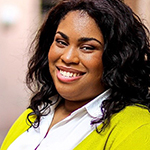
“Sometimes you can do everything right and things will still go wrong. The key is to never stop doing right.” ― Angie Thomas, The Hate U Give
There are numerous advantages to reading YA novels – a couple of them could be:
- Non-teachy way of dealing with sensitive topics – not just facts and stats about the theme in question but more about the people in that specific context, the ideas, the relationships, its beauties and disasters. The aim is not to shock but rather show the implications this complex issue might have on people and relationships, etc. – all this explored by a documented and potentially awarded writer.
- Coming-of-age stories have always been popular because people can relate to them. And yes, the world can sometimes be a dreadful place . . . But YA readers might feel less pressure because it is fiction . . . right?
This YA novel is fascinating – what to do?
- Crack the book open; give it a go!
- Read the novel in a safe environment such as a book club
- Put the book down if too much
How about giving these novels a go – and form your own opinion
- Art of Being Normal, The / Lisa Williamson
- Asking for It / Louise O’Neill
- Dear Charlie / N. D. Gomes
- Gender Games, The / Juno Dawson
- I Am Thunder / Muhammed Khan
- Junk / Melvin Burgess
- Noughts and Crosses / Malorie Blackman
- Release / Patrick Ness
- The Hate U Give / Angie Thomas
- Trouble / Non Pratt
Bibliography and supplementary materials
- http://angiethomas.com/
- http://harrypotter.wikia.com/wiki/Cover_art
- http://melvinburgess.net/news/
- https://en.wikipedia.org/wiki/Young_adult_fiction
- https://www.bbc.co.uk/programmes/p00fcxvk
- https://www.theatlantic.com/entertainment/archive/2017/12/why-so-many-adults-are-love-young-adult-literature/547334/
- https://www.theguardian.com/books/2001/aug/13/booksforchildrenandteenagers.libbybrooks
- https://www.theguardian.com/books/2018/apr/01/juno-dawson-clean-interview-transgender-anorexia-drugs
- https://www.theguardian.com/books/2018/apr/01/juno-dawson-clean-interview-transgender-anorexia-drugs
- https://www.theguardian.com/books/2018/jan/01/i-am-thunder-muhammad-khan-childrens-book-of-the-week-review
- https://www.theguardian.com/books/booksblog/2014/jul/31/ya-books-reads-young-adult-teen-new-adult-books
- https://www.youtube.com/watch?v=Yil3jtebWu0

